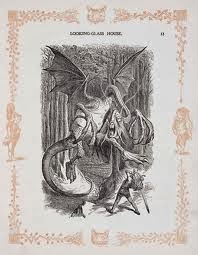Posted on January 27, 2019
Today is celebrated in many different places by many different names, including International Holocaust Remembrance Day and Auschwitz Liberation Day.
The latter name gives a hint about why January 27 was selected: it is the anniversary of the date in 1945 when Soviet troops liberated the prisoners remaining at Auschwitz I, a Nazi concentration camp in Poland.
You probably already know from some key words and the year that all of this occurred near the end of World War II. Nazi Germany not only invaded country after country in Europe, the Nazis also rounded up and murdered - we might also use extreme words like "exterminated" - Jewish people and other groups of people that the Nazis thought were undesirable.
This horrific time of history has been covered by many, many books and articles and documentaries and feature films and and and...
Instead of describing the awful deeds and terrible tragedies of the Holocaust, I will concentrate on some of the commemorations held around the world.
 As of 2004, twelve countries including Germany (and the E.U.) followed the United Nations' example and commemorate Holocaust victims on January 27. At least eight European countries chose different dates based on their own local histories. Israel's Holocaust Day (Yom HaShoah) is held in April or May, on a date determined by their Hebrew calendar, and both the U.S. and Canada follow Israel's lead for their own remembrance days.
As of 2004, twelve countries including Germany (and the E.U.) followed the United Nations' example and commemorate Holocaust victims on January 27. At least eight European countries chose different dates based on their own local histories. Israel's Holocaust Day (Yom HaShoah) is held in April or May, on a date determined by their Hebrew calendar, and both the U.S. and Canada follow Israel's lead for their own remembrance days.
The Czech Republic (aka Czechia) adds to the name "Memorial Day for the Victims of the Holocaust" the important words "and Prevention of Crimes Against Humanity." It's important to remember the past, honor the victims, and celebrate the courage of heroes, liberators, and martyrs - but it's even more important to LEARN FROM the past so that we don't repeat it!
 Some of the events held on this day include concerts by musicians who are survivors' descendants, speeches by survivors, candle-lighting and wreath-laying ceremonies, exhibitions, special lessons in schools, presentation of academic papers, film screenings, and book signings. Since this year's commemoration falls on a Sunday, I expect that many church services will focus on the Holocaust and lessons learned from this awful genocide.
Some of the events held on this day include concerts by musicians who are survivors' descendants, speeches by survivors, candle-lighting and wreath-laying ceremonies, exhibitions, special lessons in schools, presentation of academic papers, film screenings, and book signings. Since this year's commemoration falls on a Sunday, I expect that many church services will focus on the Holocaust and lessons learned from this awful genocide.
It's not enough to light a candle or lay a wreath. Many places in the world are experiencing an upswing in fear of immigrants, in hatred toward refugees, in right-wing nationalism that reminds many WWII survivors and historians of Nazism and other forms of fascism. We should ALL, this day and every day, work to resist fear and hatred, work to eradicate nationalism and to push back against fascism.
 Even if people feel that they are not at risk of genocide or fascism where and when they live, they should consider the fact that not everyone in the world is as secure. But also - perhaps even more important - people must acknowledge that discrimination, fear of "the other," and exclusion or at least lack of inclusion can be problems in all societies. Making one's own community, school, workplace, or nation at least a bit better in these regards is always worthwhile!
Even if people feel that they are not at risk of genocide or fascism where and when they live, they should consider the fact that not everyone in the world is as secure. But also - perhaps even more important - people must acknowledge that discrimination, fear of "the other," and exclusion or at least lack of inclusion can be problems in all societies. Making one's own community, school, workplace, or nation at least a bit better in these regards is always worthwhile!Also on this date:
Check out my Pinterest pages on:
And here are my Pinterest boards for:
















No comments:
Post a Comment